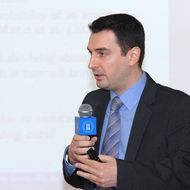- A
- A
- A
- ABC
- ABC
- ABC
- А
- А
- А
- А
- А
- HSE University
- Faculty of Economic Sciences
- Department of Theoretical Economics
- Events
- Department of Theoretical Economics research seminar with Anastasiia Khazhgerieva, HSE
-
Department
109028, Moscow,
Pokrovsky Boulevard 11, Rooms: S1029, S1030
Phone: +7 (495) 772-95-90*27172, 27173, 27174
The Department of Theoretical Economics brings together highly qualified specialists in various fields of economics, including micro and macroeconomics, monetary and financial theory, economic history and the history of economic thought. Our mission is to teach economic disciplines at HSE on the level of leading Western universities.
Melnik D. V., Boianovsky M.
Cambridge Journal of Economics. 2024. Vol. 48. No. 4. P. 589-616.
Olga Demidova, Elena Kayasheva, Artem Demyanenko.
In bk.: Eurasian Business and Economics Perspectives: Proceedings of the 38th Eurasia Business and Economics Society Conference. Vol. 25. Springer Publishing Company, 2023. Ch. 13. P. 209-232.
Шавшин Р. К., Sandomirskaia M.
Economics. EC. Высшая школа экономики, 2024. No. 267.

Department of Theoretical Economics research seminar with Anastasiia Khazhgerieva, HSE
Dear colleagues,
Department of Theoretical Economics invites you to attend the research seminar with Ph.D student Anastasiia Khazhgerieva, HSE
Date: May 21, 2024
Time: 1:00 p.m.
Working language: English
The link to the seminar:https://telemost.yandex.ru/j/64729593999529
·
Title: "Learning Task Complexity: Role of Experience in a Crowdsourcing Platform"
Abstract: In a crowdsourcing platform, labor supply and demand decisions happen at a significantly higher frequency than in a traditional labor market. As a result, a worker faces uncertainty associated with a labor supply decision every time when considering entering a previously unknown crowd project. Using detailed micro-level big data, we study the distinctive features of labor interactions in a micro-tasking platform with a focus on the role of worker experience affecting worker-employer matches. First, we show that in the absence of full information about tasks’ complexity, workers form their expectations based on available indicative task characteristics initially unrelated to the cost of effort. Worker experience is proven to alleviate ambiguity and contribute to the exponential growth of attractive tasks.
Second, the pure cost of uncertainty resulting from the absence of some project characteristics for just-created projects accounts for a 3.66¢ loss for a worker, which is twice as large as an average microtask reward. Third, labor supply elasticity significantly differs across content categories of micro-tasks suggesting a taste for the specialization of crowdsourcing workers.
- About
- About
- Key Figures & Facts
- Sustainability at HSE University
- Faculties & Departments
- International Partnerships
- Faculty & Staff
- HSE Buildings
- Public Enquiries
- Studies
- Admissions
- Programme Catalogue
- Undergraduate
- Graduate
- Exchange Programmes
- Summer University
- Summer Schools
- Semester in Moscow
- Business Internship
-
https://elearning.hse.ru/en/mooc/
Massive Open Online Courses
-
https://www.hse.ru/en/visual/
HSE Site for the Visually Impaired
-
http://5top100.com/
Russian Academic Excellence Project 5-100
- © HSE University 1993–2024 Contacts Copyright Privacy Policy Site Map
- Edit






